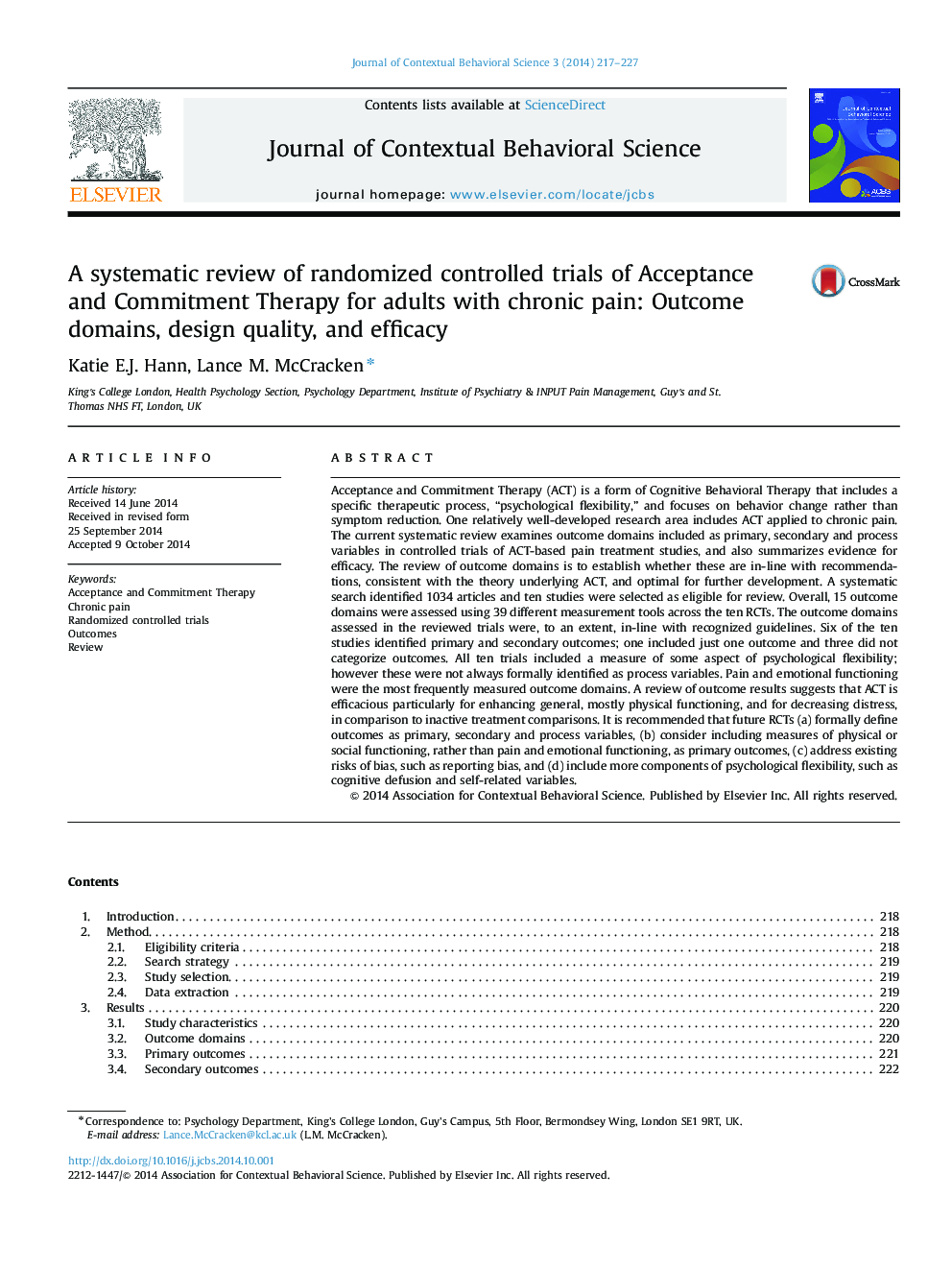| کد مقاله | کد نشریه | سال انتشار | مقاله انگلیسی | نسخه تمام متن |
|---|---|---|---|---|
| 911239 | 917903 | 2014 | 11 صفحه PDF | دانلود رایگان |
• There are now at least ten RCTs (using an inclusive definition of this term) that address ACT for chronic pain.
• These include assessment of 15 separate outcome domains with 39 different instruments.
• Articles on ACT for chronic pain do not always classify their measures as primary, secondary, or process, but should do.
• ACT appears superior to inactive treatments for chronic pain.
Acceptance and Commitment Therapy (ACT) is a form of Cognitive Behavioral Therapy that includes a specific therapeutic process, “psychological flexibility,” and focuses on behavior change rather than symptom reduction. One relatively well-developed research area includes ACT applied to chronic pain. The current systematic review examines outcome domains included as primary, secondary and process variables in controlled trials of ACT-based pain treatment studies, and also summarizes evidence for efficacy. The review of outcome domains is to establish whether these are in-line with recommendations, consistent with the theory underlying ACT, and optimal for further development. A systematic search identified 1034 articles and ten studies were selected as eligible for review. Overall, 15 outcome domains were assessed using 39 different measurement tools across the ten RCTs. The outcome domains assessed in the reviewed trials were, to an extent, in-line with recognized guidelines. Six of the ten studies identified primary and secondary outcomes; one included just one outcome and three did not categorize outcomes. All ten trials included a measure of some aspect of psychological flexibility; however these were not always formally identified as process variables. Pain and emotional functioning were the most frequently measured outcome domains. A review of outcome results suggests that ACT is efficacious particularly for enhancing general, mostly physical functioning, and for decreasing distress, in comparison to inactive treatment comparisons. It is recommended that future RCTs (a) formally define outcomes as primary, secondary and process variables, (b) consider including measures of physical or social functioning, rather than pain and emotional functioning, as primary outcomes, (c) address existing risks of bias, such as reporting bias, and (d) include more components of psychological flexibility, such as cognitive defusion and self-related variables.
Journal: Journal of Contextual Behavioral Science - Volume 3, Issue 4, October 2014, Pages 217–227
